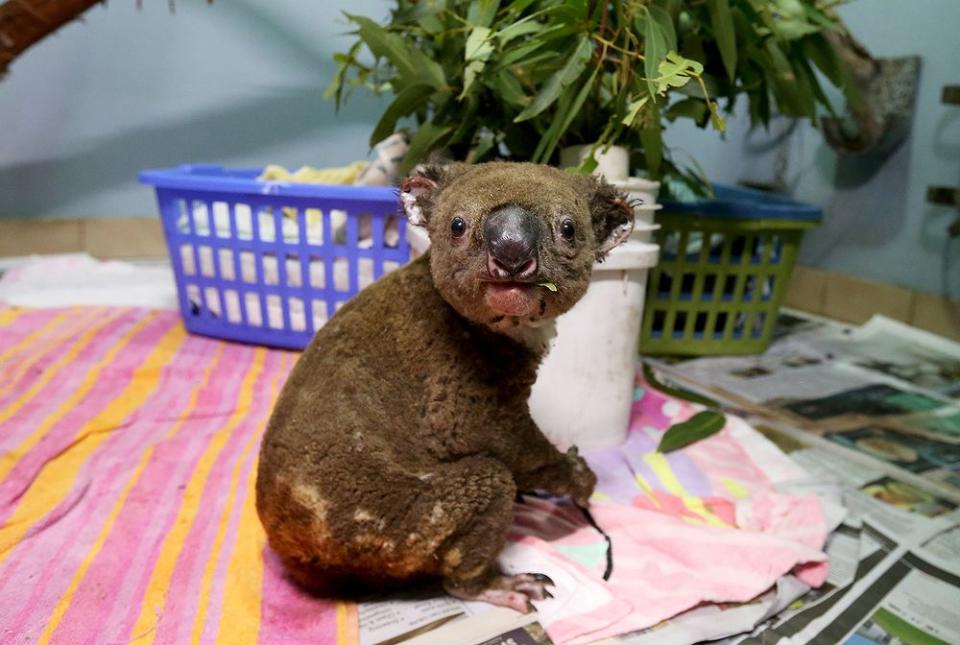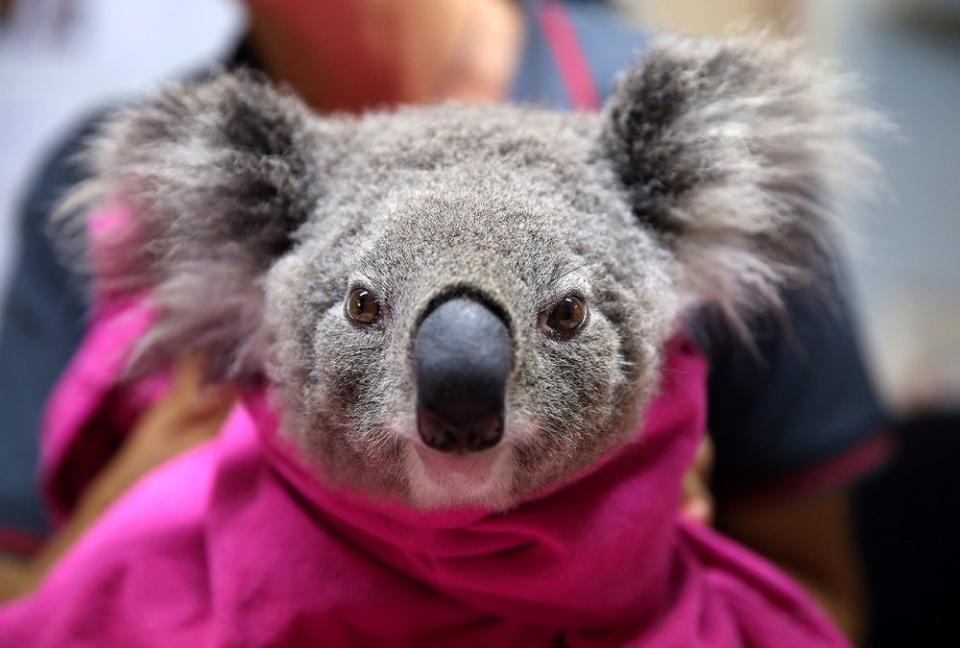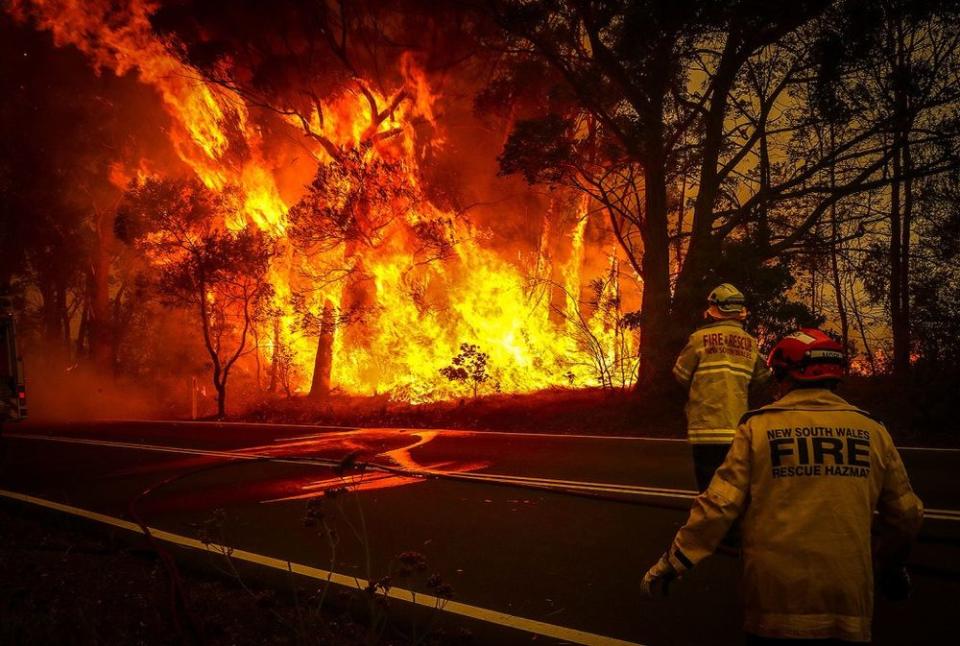Half a Billion Animals, Including 8,000 Koalas, Feared Dead from Devastating Australian Wildfires

The devastating wildfires that are currently ravaging through Australia have left experts fearing that an estimated half-billion animals are dead.
As more than 130 fires continue to burn across New South Wales and Victoria, ecologists from the University of Sydney believe 480 million total mammals, birds and reptiles have died since September, news.com.au reports.
Part of the heartbreaking count includes 8,000 koalas from New South Wales, which equates to a third of the region’s entire koala population. That figure is expected to increase as the fires worsen throughout the week.
Koalas have reportedly been hit the hardest due to their slow-moving nature and the fact they only eat eucalyptus tree leaves which are comprised of oil, making them highly flammable.
“The fires have burned so hot and so fast that there has been significant mortality of animals in the trees, but there is such a big area now that is still on fire and still burning that we will probably never find the bodies,” Nature Conservation Council ecologist Mark Graham said, according to the local outlet.
“[Koalas] really have no capacity to move fast enough to get away [from the fast-moving flames],” he added.


RELATED: Australian Firefighters Who Died ‘Bravely Defending’ Communities Were New Dads & Close Friends
The rising numbers have become increasingly concerning to environmental activists, including Stand Up for Nature, an alliance of 13 organizations, and nonprofit wildlife conservation organization, Science for Wildlife.
In a letter to New South Wales Premier Gladys Berejiklian, Stand Up for Nature called for an immediate and temporary halt on logging of native forests until experts could efficiently understand the wildfires’ impacts on the species and habitat.
“The impact on many species has been extreme and is ongoing. The full scale of wildlife losses will probably never be known, but they will surely number in the millions,” the letter read, according to news.com.au. “The effects of the catastrophic fires have been so far-reaching that allowing further loss of habitat and impact on native species would be unconscionable.”
“These unprecedented fires have jeopardized the long-term viability of threatened species populations and forest ecosystems in several areas,” the letter continued. “We therefore call on the government to ensure logging industry workers are supported during this process, either with alternative employment options, financial assistance or other worthwhile alternatives. We stand ready to engage constructively with the industry and government to achieve this goal.”
The unprecedented circumstances have also been eye-opening for Science for Wildlife’s executive director Dr. Kellie Leigh.
“We’re getting a lot of lessons out of this and it’s just showing how unprepared we are,” Leigh said, according to the local outlet. “There’s no procedures or protocols in place — even wildlife carers don’t have protocols for when they can go in after the fire.”

In addition to the animals, the ravaging blazes have left 17 people dead — including two firefighters, Geoffrey Keaton and Andrew O’Dwyer — and many others unaccounted for, as well as forced hundreds from their homes and left thousands stranded, CNN reported.
Millions of acres of land across the continent have also been destroyed from the flames, including 8.9 million acres of land in New South Wales, 2.9 million acres in Western Australia, 1.9 million acres in Victoria, at least 618,000 acres in Queensland, and more than 225,000 acres in South Australia, according to CNN.
On Wednesday — one day after what was reportedly deemed the deadliest day of the fire crisis since its start — Australia deployed military ships and aircraft to help victims and communities in need.
RELATED VIDEO: Wildfires Are Sweeping Across California Causing Thousands to Evacuate
A state of emergency was also declared in New South Wales in December, which gives the Rural Fire Service commissioner “extraordinary powers” to make decisions for using and allocating government resources, according to CNN.
As of Thursday, there are 2,000 firefighters working in New South Wales alone, with additional help arriving from the United States, Canada, and New Zealand.
With strong winds and high temperatures expected to come in on Saturday, officials are warning residents that they could create incredibly dangerous conditions — even worse than past weeks — and mandating that they evacuate.

